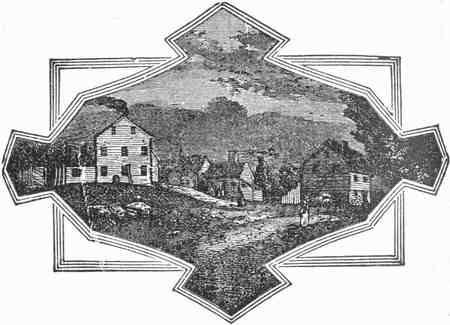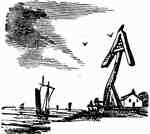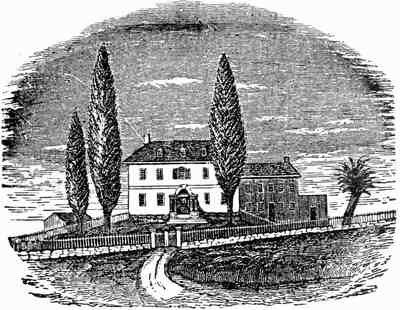Thrilling Incidents In American History
• Preface
Revolutionary War
• Opening Of The Revolution
• The Boston Massacre
• Affair of the Sloop Liberty
• Affair of the Gaspee
• The Tea Riot
• The Boston Port Bill
• The First Continental Congress-Consequent Parliamentary proceedings
• Organization of the Minute-Men
• Patrick Henry-Second Provincial Congress-First Military Enterprise
• Battles of Lexington and Concord
• Battle of Bunker's Hill
• Capture of Ticonderoga
• Second Continental Congress-Washington's Appointment
• Siege of Boston
• Incidents at the Evacuation of Boston
• Burning of Falmouth
• Arnold's Expedition to Quebec
• Siege of Quebec, and Death of Montgomery
• Scenes at Quebec during the Siege
• Expedition against Charleston
• The Declaration of Independence
• The Battle of Long Island
• Washington's Retreat through New Jersey-Capture of General Lee
• Battle of Trenton
• Battle of Princeton
• Capture of General Prescott
• Battle of Brandywine
• Battle of Germantown
• Battle of Red-Bank
• Attack on Fort Mifflin-Retirement of the Army to Valley Forge
• Battle of Bennington
• Murder of Miss M'Crea
• Battle of Stillwater
• Battle of Bemis' Heights, and Retreat of Burgoyne
• Capture of Forts Clinton and Montgomery
• Surrender of Burgoyne
• The Treaty with France
• Attack on Savannah, and Death of Pulaski
• Storming of Stony Point
• General Sullivan's Campaign against the Mohawks
• Tarleton's Quarters
• Battle of Camden, and Death of De Kalb
• Arnold's Treason
• The Loss of the Randolph
• The British Prison-Ships
• Capture of the Serapis
• Putnam's Feat at Horseneck
• Battle of Eutaw Springs
• Wayne's Charge at Green Spring
• Capture of the General Monk
• The Mutinies
• Battle of the Cowpens
• Capture of New London
• Massacre of Wyoming
• Surrender of Cornwallis
War With France
• Capture of L'Insurgente
• The Constellation and Vengeance
War With Tripoli
• Burning of the Philadelphia
• Bombardment of Tripoli
• Loss of the Intrepid
• Expedition of General Eaton
Second War With England
• Battle of Tippecanoe
• Capture of the Guerriere
• Tragical Affair of an Indian Chief
• Battle and Massacre at the River Raisin
• Captain Holmes's Expedition
• Capture of the Caledonia and Detroit
• The Wasp and Frolic
• Gallant Conduct of Lieutenant Allen at the Capture of the Macedonian
• Capture and Destruction of the Java
• Siege of Fort Meigs
• Capture of York, and Death of General Pike
• Defence of Sackett's Harbour
• Defence of Fort Stephenson
• Battle of Lake Erie
• Battle of the Thames
• Gallant Action of Commodore Chauncey under the guns of Kingston Citadel
• The Sacking of Hampton
• Capture of the Peacock
• Massacre at Fort Mimms
• Surrender of Weatherford
• Battle of Niagara
• BattIe of New Orleans
War With Mexico
• Battle of Palo Alto
• Battle of Resaca de la Palma
• Capture of Monterey
• Battle in the Streets of Monterey
• Thrilling Scenes in the Battle of Buena Vista
• Bombardment of Vera Cruz
• Battle of Cerro Gordo
• Battles of Contreras and Churubusco
• Storming of Chapultepec


Battle Ground at Trenton.
BATTLE OF PRINCETON.
 LTHOUGH General Cadwalader had not been
able to pass the Delaware
at the appointed time, yet,
believing that General
Washington was still on
the Jersey side, on the
27th he crossed the river
with fifteen hundred men,
about two miles above Bristol; and even after he was
informed that General Washington had again passed
into Pennsylvania, he proceeded to Burlington, and
next day marched on Bordentown, the enemy hastily
retiring as he advanced.
LTHOUGH General Cadwalader had not been
able to pass the Delaware
at the appointed time, yet,
believing that General
Washington was still on
the Jersey side, on the
27th he crossed the river
with fifteen hundred men,
about two miles above Bristol; and even after he was
informed that General Washington had again passed
into Pennsylvania, he proceeded to Burlington, and
next day marched on Bordentown, the enemy hastily
retiring as he advanced.
The spirit of resistance and insurrection was again fully awakened in Pennsylvania, and considerable numbers of the militia repaired to the standard of the commander-in-chief, who again crossed the Delaware and marched to Trenton, where, at the beginning of January, he found himself at the head of five thousand men.
The alarm was now spread throughout the British army. A strong detachment, under General Grant, marched to Princeton; and Earl Cornwallis, who was on the point of sailing for England, was ordered to leave New York, and resume his command in the Jerseys.
On joining General Grant, Lord Cornwallis immediately marched against Trenton. On his approach, General Washington crossed a rivulet named the Asumpinck, and took post on some high ground, with the rivulet in his front. On the advance of the British army on the afternoon of the 2d of January, 1777, a smart cannonade ensued, and continued till mght, Lord CornwalIis intending to renew the attack next morning; but soon after midnight General Washington silently decamped, leaving his fires burning, his sentmels advanced, and small parties to guard the fords of the rivulet, and, by a circuitous route through Allentown, proceeded towards Princeton.
It was the most inclement season of the year, but the weather favoured his movement. For two days before it had been warm, soft, and foggy, and great apprehensions were entertained lest, by the depth of the roads, it should be found impossible to transport the baggage and artillery with the requisite celerity, but about the time the troops began to move, one of those sudden changes of weather which are not unfrequent in America bappened. Tbe wind shifted to the northwest, while the council of war which was to decide on their ulterior operations was sitting. An intense frost set in; and instead of being obliged to struggle through a miry road, the army marched as on solid pavement. The American soldiers considered the change of weather as an interposition of Heaven in their behalf, and proceeded on their way with alacrity.
Earl Cornwallis, in his rapid march towards Trenton, had left three regiments, under Lieutenant-Colonel Mawhood, at Princeton, with orders to advance on the 3d of the month to Maidenhead, a village about half way between Princeton and Trenton. General Washington approached Princeton towards daybreak, and shortly before that time Colonel Mawhood's detachment had begun to advance towards Maidenhead, by a road at a little distance from that on which the Americans were marching. The two armies unexpectedly met, and a smart engagement instantly ensued. At first the Americans were thrown into some confusion; but General Washington, by great personal exertions, restored order, and renewed the battle. Colonel Mawhood, with a part of his force, broke through the American army, and continued his route to Maidenhead; the remainder of his detachment, being unable to advance, retreated by different roads to Brunswick.
In this encounter a considerable number of men fell on each side. The Americans lost General Mercer, whose death was much lamented by his countrymen. Captain Leslie, son of the Earl of Leven, was among the slain on the side of the British; and he was buried with military honours by the Americans, in testimony of respect not to himself merely, but to his family also.
Early in the morning Earl Cornwallis discovered that General Washington had decamped; and soon afterwards the report of the artillery in the engagement with Colonel Mawhood near Princeton, convinced him of the direction which the American army had taken. Alarmed for the safety of the British stores at Brunswick, he advanced rapidly towards Princeton. In the American army it had indeed been proposed to make a forced march to Brunswick, where all the baggage of the British army was deposited; but the complete exhaustion of the men, who had been without rest, and almost without food for two days and nights, prevented the adoption of the measure. General Washington proceeded towards Morristown, and Lord Cornwallis pressed on his rear; but the Americans, on crossing Millstone river, broke down the bridge at Kingston, to impede the progress of their enemies; and there the pursuit ended. Both armies were completely worn out, the one being as unable to pursue as the other was to retreat. General Washington took up a position at Morristown, and Lord Cornwallis reached Brunswick, where no small alarm had been excited by the advance of the Americans, and where every exertion han been made for the removal of the baggage, and for defending the place.
General Washington fixed his head-quarters at Morristown, situated among hills of difficult access, where he had a fine country in his rear, from which he could easily draw supplies, and was able to retreat across the Delaware, if needful. Giving his troops little repose, he over-ran both East and West Jersey, spread his army over the Raritan, and penetrated into the county of Essex, where he made himself master of the coast opposite Staten Island. With a greatly inferior army, by judicious movements, he wrested from the British almost all their conquests in the Jerseys. Brunswick and Amboy were the only posts which remained in their hands, and even in these they were not a little harassed and straitened. The American detachments were in a state of unwearied activity, frequently surprising and cutting off the British advanced guards, keeping them in perpetual alarm, and melting down their numbers by a desultory and indecisive warfare.

Washington's Headquarters at Morristown.